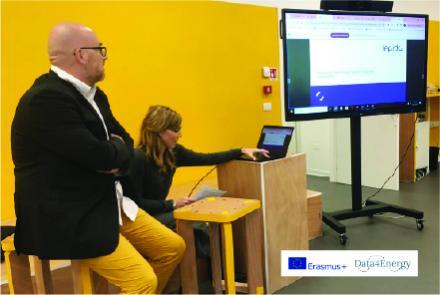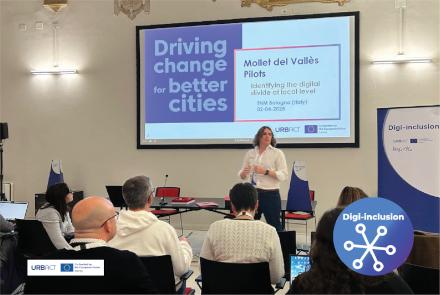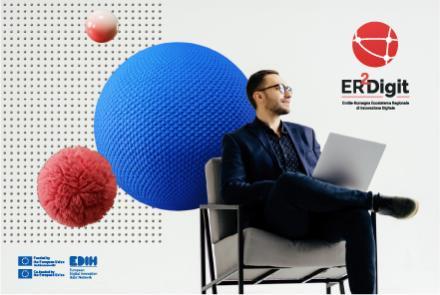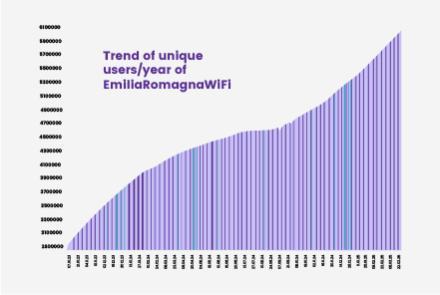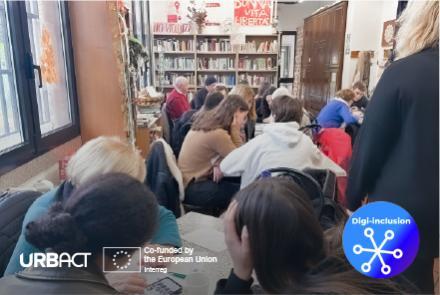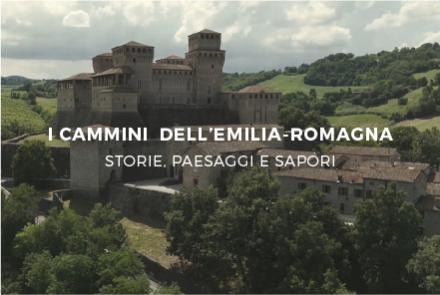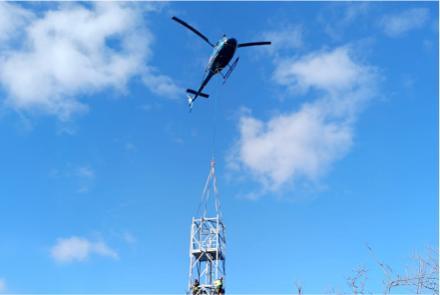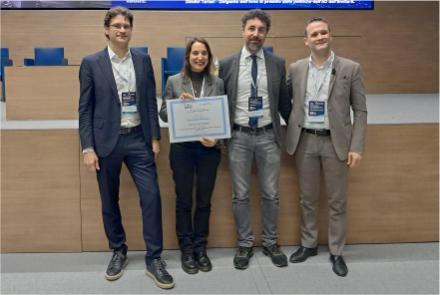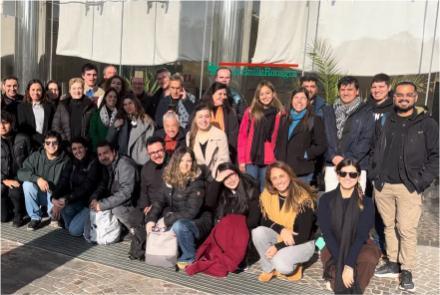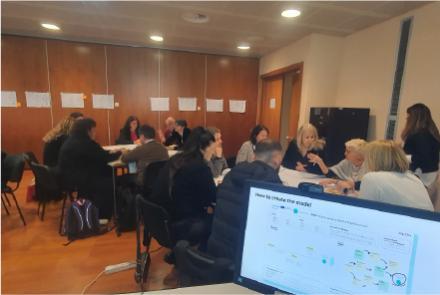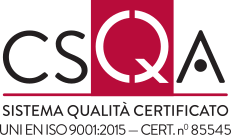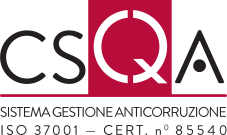News Archive
On March 12 and 13 the final seminar of the European project Data4Energy was held in Falun (Sweden).
It’s an Erasmus+ initiative that aims to strengthen the capacity of local governments in the collection, management and use of energy data to support more effective policies on environmental sustainability.
Maggio 9th, 2025
Welfare & Integrazioni Digitali
From 1 to 3 of April 2025 the Transnational Meeting of the European project Digi-Inclusion was held in Bologna, an occasion for exchange and dialogue that put the focus on digital inclusion themes organized by Lepida together with every involved European partner.
Maggio 7th, 2025
Welfare & Integrazioni Digitali
During the last week of March, in Turin, 4 European Digital Innovation Hub (EDIH) have met the European Union to evaluate the upgrades and results obtained until now.
Regione Emilia-Romagna supports since its beginning ER2Digit, since it represents a fundamental piece of the regional ecosystem of digital transformation.
Aprile 17th, 2025
Progetto Digital Innovation Hub E-R
The URBACT Local Group (ULG) of the Digi-Inclusion project (coordinated by Lepida) has settled the priority actions in order to reduce the digital, access, use and usability gap in the Metropolitan Area of Bologna: these are going to…
Marzo 25th, 2025
Welfare & Integrazioni Digitali
Frost and snow couldn’t stop the construction of the trellises for the CellMon projects.
Thanks to the help of 3 helicopters, in the last two months Lepida has completed the construction works of numerous trellises: Neviano degli Arduini, Coli, Lesignano de’ Bagni, Bedonia, Lizzano in Belvedere, Carpineti, Casola Valsenio, Cerignale and Predappio.
Febbraio 28th, 2025
Reti
On the 3rd and 4rth of December 2024, the kick-off meeting of the PADRION (Public Administrations facing Digital transformation as a community in the ADRION area) project was held in Bologna, co-financed by the Interreg Program IPA ADRION with the coordination of Lepida.
Gennaio 22nd, 2025
Welfare & Integrazioni Digitali
The annual audit by the Certification Body on Quality, Information Security and Health and Safety Management Systems was successfully completed on the 14th of November on the work led by Lepida, confirming the ISO 9001, ISO 27001, ISO 27017, ISO 27018 and ISO 45001 certifications.
Dicembre 13th, 2024
Sicurezza, Ambiente & Emergenza
Less than 10 minutes to generate an air quality impact scenario based on the vehicles running at regional level and in each municipality.
This is, after months of brisk work, a first result of the Proof of Concept (POC) of VERA, the Regional Digital Twin.
Dicembre 10th, 2024
Azioni Strategiche & Speciali
